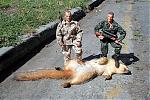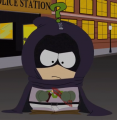I think this book is a must read for anyone interested in Small Wars and the recent and very relevant history of the Asia-Pacific. I also read Spector's "Eagle Against the Sun" and highly recommend it also. Back to the Ruins of Empire, this short excerpt from the NYT review sums it nicely:
With access to recently available firsthand accounts by Chinese, Japanese, British, and American witnesses and previously top secret U.S. intelligence records, Spector tells for the first time the fascinating story of the deadly confrontations that broke out–or merely continued–in Asia after peace was proclaimed at the end of World War II. Under occupation by the victorious Allies, this part of the world was plunged into new power struggles or back into old feuds that in some ways were worse than the war itself. In the Ruins of Empire also shows how the U.S. and Soviet governments, as they secretly vied for influence in liberated lands, were soon at odds.
At the time of the peace declaration, international suspicions were still strong. Joseph Stalin warned that “crazy cutthroats” might disrupt the surrender ceremony in Tokyo Bay. Die-hard Japanese officers plotted to seize the emperor’s palace to prevent an announcement of surrender, and clandestine relief forces were sent to rescue thousands of Allied POWs to prevent their being massacred.
In the Ruins of Empire paints a vivid picture of the postwar intrigues and violence. In Manchuria, Russian “liberators” looted, raped, and killed innocent civilians, and a fratricidal rivalry continued between Chiang Kai-shek’s regime and Mao’s revolutionaries. Communist resistance forces in Malaya settled old scores and terrorized the indigenous population, while mujahideen holy warriors staged reprisals and terror killings against the Chinese–hundreds of innocent civilians were killed on both sides. In Indochina, a nativist political movement rose up to oppose the resumption of French colonial rule; one of the factions that struggled for supremacy was the Communist Viet Minh led by Ho Chi Minh. Korea became a powder keg with the Russians and Americans entangled in its north and south. And in Java, as the Indonesian novelist Idrus wrote, people brutalized by years of Japanese occupation “worshipped a new God in the form of bombs, submachine guns, and mortars.”
Through impeccable research and provocative analysis, as well as compelling accounts of American, British, Indian, and Australian soldiers charged with overseeing the surrender and repatriation of millions of Japanese in the heart of dangerous territory, Spector casts new and startling light on this pivotal time–and sets the record straight about this contested and important period in history.















Bookmarks